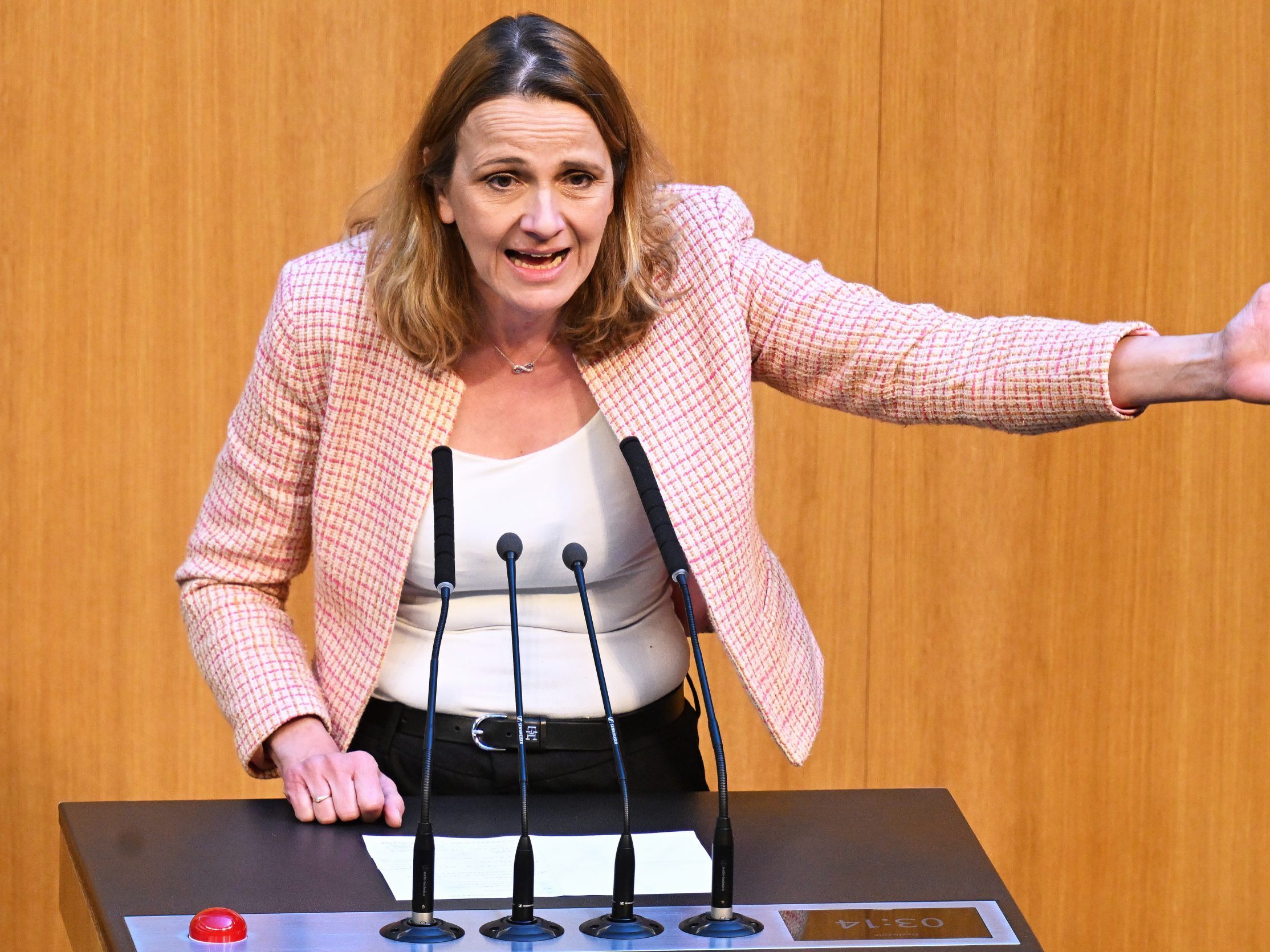"Comprehensive Care with All Luxury Services": FPÖ Criticizes Asylum Policy in Vienna

The Vienna election taking place on Sunday also indirectly plays into the upcoming National Council session. In a current session with Social Minister Korinna Schumann (SPÖ), the Freedom Party wants to target benefits for illegal immigrants - primarily in the federal capital, they announced at a press conference on Wednesday. The Greens, for their part, are targeting the government's road construction plans and are demanding a social electricity tariff.
FPÖ Criticizes Vienna's Conditions on the Asylum Issue
Social spokesperson Dagmar Belakowitsch wants to know from Schumann: "When will the social safety net for asylum seekers and illegal immigrants be dismantled?" While the government is "relatively quick" with decisions on cuts for pensioners, they do not reduce "pull factors for illegal immigration." "Illegals who have made themselves comfortable in our social system in Austria" are mainly in Vienna, emphasized the blue social spokesperson. Migrants here have "comprehensive care with all luxury services."
Motion to Withdraw from the Asylum and Migration Pact
Belakowitsch described the SPÖ's chosen topic for the current European session - "Austria's contribution to a European plan for affordable housing" - as "funny." The topic is actually a matter for the states, and the SPÖ, "as the largest landlord in Europe," is also not competent. For example, Wiener Wohnen has followed every rent increase in recent years, and operating costs have also exploded. "I believe we should not roll out this model to Europe, as Europeans deserve something different."
FPÖ security spokesperson Gernot Darmann also targeted illegal migrants and criticized the alleged inaction of the government. Gang wars, stabbings, rapes, and terrorist attacks have shaped Austria's image in recent years. And not just in the federal capital anymore, he criticized. Therefore, the FPÖ wants to apply for, among other things, the withdrawal from the EU's asylum and migration pact in the National Council session.
Greens Want "Consolidate Instead of Concrete"
The Greens have prepared an urgent inquiry on the topic of road construction under the motto "Consolidate instead of concrete." The government must not continue to turn into an "ecological, economic, and budgetary dead end," warned Green leader Werner Kogler at a press conference on Wednesday before the implementation of the road construction investments planned by the government. "Austria is the roundabout of Europe," he criticized. Already, 130,000 kilometers of roads have been built in this country, which is 50 percent more than the EU average when calculated per capita. It is not acceptable that the government now - "in conjunction with the federal states and municipalities" - invests further double-digit billions in new construction or maintenance.
The federal states and municipalities are also responsible here, emphasized Kogler. In Lower Austria, for example, the costs for the new roads planned by 2035 amount to almost half a billion euros. Already, municipalities have to allocate an ever-increasing share of their funds for road construction and maintenance. By stopping the expansion, which the Greens view as excessive, quick savings effects could be achieved, and long-term savings through lower maintenance costs and the possibility of higher dividends from Asfinag, which according to the government's plans, are supposed to help with budget consolidation.
Greens Propose Electricity Social Tariff
The Greens will also propose in the National Council an electricity social tariff of five cents per kilowatt-hour for low-income households. The budget would not be burdened by this, as the costs are to be paid by the energy suppliers, who have achieved record profits in recent years, explained former Environment Minister and designated new Green leader Leonore Gewessler. This already exists with many suppliers, but now they should become mandatory and thus reach up to 400,000 households. The proposal is part of a fully developed draft of the Electricity Industry Act, which was already under review under Gewessler and now, 420 days later, still lies in the drawer. "The industry is waiting for it, the people in our country," Gewessler advocated to the ÖVP and SPÖ to finally approve the proposal. This would bring not only a secure and affordable electricity supply but also a faster and more planned network expansion and stronger rights for electricity customers.
Gewessler was pleased that, together with the governing parties, a motion to protect the Hungarian LGBTIQ* community is to be introduced.
(APA/Red)
This article has been automatically translated, read the original article here.





